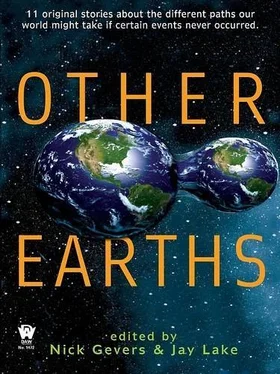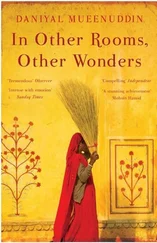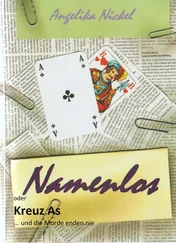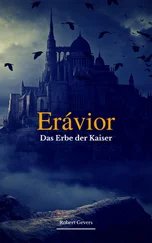“Bread?” said the landgravine. “Why do you need bread?” She watched the rolls rolling, as though she had never seen bread before.
Erzs’bet felt as though she could not breathe. What should she answer?
“Speak, child,” said Father Conrad. “Speak as truthfully as our Lord taught us.” He smiled, a smile that he might have thought was kind. But his eyes glittered like steel.
What had M’rta whispered, lying beside her at night when she could not sleep? The T̈nd’r could call the blossom from its bud, the rabbit from its burrow, the fox from its den. They could smell the storm coming while the sky was still blue. She was one of the T̈nd’r, but none of these skills would help her now. What good did it do her, having the blood of the Moon?
Then suddenly she heard it: soft, insistent. The cooing of doves in the courtyard. Usually they stayed in their cote beside the kitchen, where they were kept for their eggs, and for pie.
“Come,” whispered Erzs’bet. “Come to me.” It was not much, it was probably less than nothing, but it was what she could do. Because she was one of the T̈nd’r.
“What was that, Elizabeth?” asked the landgravine.
“Speak up, child. Father Conrad can’t hear you.”
Then a rush of wings, and the doves, so many of them, white and brown and gray and speckled, were stepping over the chapel floor—pecking, pecking, until the very last crumb was gone.
“Surely these are the birds of God.”
Erzs’bet turned to see who had spoken. There was a boy standing beside her. He was tall and thin and slightly stooped, as though ashamed of his height. His eyebrows rose to a peak in the middle, which gave him a look of perpetual curiosity. Like the landgrave’s, she thought, and, suddenly realizing who he was, looked down again at the floor, where the doves were still searching for more bread. She noticed that his boots were covered with mud.
“You don’t remember me, Princess. Or if you do, I’m sorry for it. I seem to remember that I was a particularly unpleasant boy.”
“Ludwig! I thought you weren’t arriving until—well, later.” The landgravine did not look particularly pleased to see her son.
“I left the university as soon as I heard that my father was ill. But I find that I have arrived only in time to pray by his body.” He looked toward the chancel, where the landgrave lay beneath his crimson pall, in a cloud of incense. Erzs’bet saw that although he seemed calm, his eyes were red, as though he had been weeping. He turned back to the landgravine. “Surely the princess meant this bread for the poor. The landgrave himself would have done no less. The Word of God traveled as a dove to announce our Savior. Isn’t that right, Father Conrad? I think these birds rebuke us for our impiety. Here, Princess. Give this to those who need it.”
The purse jingled as he dropped it into her hands, sending the doves flying upward, while velvet sleeves fluttered to protect faces. They flew around the beams of the chapel, then out through the door and up into the blue of the sky. She clutched the purse carefully and watched as Ludwig walked up the steps to the chancel, then knelt beside the landgrave’s body, with his head in his hands. She thought, He is not like Herman, and perhaps in time I could like him, just a little.
“So she married Ludwig,” said Csilla, “and they lived happily until he died in the Crusades. Then she went into a convent, where she lived for the rest of her life. And the people said she could perform miracles, like curing the sick. So they called her a saint.”
“Is that the end?” asked Mrs. Mad’r. “I’m glad you told it to me. It’s not like in the official history books, is it?”
“It never is,” said Csilla.
“And you know all of your grandmother’s stories, like this, so complete?”
“Of course,” said Csilla, wondering why Mrs. Mad’r should doubt her.
“Csilla,” said Mrs. Mad’r, “I want to tell you a story that I know you have not heard. But first we must have some dinner, and then we must take a walk into the forest. Do you think that you’re strong enough? It’s not too far.”
“I’m all right,” said Csilla, although as she sat up, she felt the nausea again. But she was going to be brave, like her father.
Mrs. Mad’r wrapped a shawl around Csilla’s shoulders. “This dress used to be Susanna Martin’s. That’s Mrs. Martin’s daughter. You look a little like her—it was her passport we used to get you on the airplane in Vienna. It’s going to be colder in the forest. Are you ready, Csilla?”
“Yes,” said Csilla, although she did not know what she was supposed to be ready for.
They walked down the back steps and through what had once been a garden. It was dilapidated now. Weeds grew in the flower beds, and the pond was covered with scum. But some ancient peach trees still stood to mark where an orchard had once been. Soon the garden gave way to rhododendrons and mountain laurels, and then an oak forest, and they were walking along a path littered with oak leaves. Sunlight came down through the branches above, and the shadows of the trees stretched eastward. The sun was beginning to set. The forest was silent, except for the occasional call of a bird or the rustle of a squirrel in the treetops.
“I wonder if Erzs’bet’s forest was like this,” said Csilla.
“Older,” said Mrs. Mad’r. “This forest was cut seventy years ago for lumber. These are young trees. No, this reminds me of another forest.” She walked on for a moment in silence. Leaves crackled under her shoes, and a twig broke with a loud snap. Then she continued, “Once, there was a girl named Margit.”
Margit’s Story
Margit wondered how long they had been sitting in the barn, surrounded by the smell of hay and horses. She thought there was only one horse in the barn—she could hear it stamping in a corner and occasionally banging its bucket against the far wall. But the sky was clouded, and moonlight came only occasionally through the barn door, which anyway was only half open. Judit would not allow them to open it further.
“I’m hungry,” said Deb’ra.
“Hush,” said Judit. “We have to stay quiet. Anyway, you ate the last sandwich hours ago.”
“How do you know it was hours?” asked Margit. “Can you see your watch?” It was so dark in the barn that she could barely see Judit’s face, or Deb’ra’s, scowling as though she were about to cry, or Magda’s, silly Magda’s, blowing spit bubbles that shimmered in the faint light. With her handkerchief, which smelled like cheese from the sandwiches, she wiped the trail of spit that ran down Magda’s chin. Thank goodness D’nes had fallen asleep on the straw. For a moment the moon escaped from the clouds, and she saw that he was sucking his thumb. Well, let him.
She felt a hand on her arm, and then Judit was pulling her away, saying, “Stay there, Deb’ra, and take care of Magda.”
“Listen,” said Judit. “We have to have a plan. Once Deb’ra gets really hungry, she won’t care how much noise she makes. She’s been that way since she was a baby. And what about D’nes when he wakes up? At least Magda will stay quiet as long as we tell her. But we need food too, Margit. I don’t know how far it is to the border, but when Father took us to Arad last year, it was more than an hour by train. We can’t walk if we’re hungry.”
“Can we ask the farmer for food? We could tell him we were on a trip with our parents and got lost. They’d have to feed us, wouldn’t they?”
“They wouldn’t have to do anything, not if they saw these on our clothes.” Even in the darkness, Margit could see the yellow stars sewn on Judit’s and Deb’ra’s dresses. “Why should they treat us any better than the people in Szeged?”
Читать дальше












